Welcome the second and final part of this look at game that focus on story while avoiding words. In the first post, I talked about Ico and Shadow of the Colossus. This time, I'm going to speak about Journey and Brothers: A Tale of Two Sons. Again, since these are story-driven games, I encourage you to go play them before reading further. I'll be talking about every part of the story with no regard for spoilers. Consider yourself warned!
|
The Yawhg will be here in six weeks... and no one expects it. Not a one of us. We just keep on living our lives, week by week, unaware.
This is how the charming, story-driven game called The Yahwg starts. It dangles just a little bit of the plot in front of you and then throws you into making uninformed choices. Much like the protagonists mentioned above, you have little idea how choosing between attending a ball or hunting animals in the forest will help you prepare for the doom coming to your town. And that is all the game is, essentially. Making choices and exploring how they play out in the six weeks before the Yawhg arrives. It's beautifully illustrated, written in a storytelling style that is part letter writing and part fairytale, and intriguing in its pure focus on story. It uses a clever system that ties your choices and world events into mini-stories that seem to flow naturally, even when you thought you were being clever and veering off the path. It's also billed as a co-op game, and I'm really glad I decided to play through it with someone. It's perfectly playable as a single player game, but as you can see in the trailer, playing with people makes it a lively experience. You're all just picking from lists, but it entrenches that feeling of directing a character and makes the revelations all the more fun. Once you have to make the character decisions in front of people, you'll change the way you play (for the better). I was thoroughly impressed with how quickly this game established characters that I sympathized with, especially when they didn't become the hero I was hoping they would become. I'd love to tell you examples, but I really don't want to spoil too much (even the trailer gives away more than I would like). Let's just say this is a great game for people that want to see a charming cad become a fantasy crime fighter, only to turn into a blood-addicted vampire, and then the triumphant leader of a town. For a long time, Shadow of the Colossus was at the top of my list of favorite games. It created a story of desperation in a strange land that I totally dug into. The mechanics of the game tied into the story in ways I hadn't seen before. And it did this with almost no words, proving my secret fear that writers are useless (not quite, but it's an important point).
This is going to be a multi-part look at a few games that I feel are related in terms of narrative design. We have Fumito Ueda's two acclaimed titles, Ico and Shadow of the Colossus; Journey, by thatgamecompany; and Brothers: A Tale of Two Sons by Starbreeze. As a game writer, I want to see how they made stories that I loved while using little or no real language. Also, I am going to spoil all of these games. They are all games that try to put forward an interesting and surprising story, so if you don't want them spoiled, you should stop reading. Readers and critics often talk about plot holes, those spots in a story where the writer didn't explain how the characters got from the crashing airship to the top of the volcano without getting hurt.
Recently, I spoke to a group of people at my work to explain how you write a game story, and it felt a lot like writing intentional plot holes into a story. I went with Little Red Riding Hood as an example. Of course, this has already been made into a game called The Path, but I haven't played it so this isn't about that one. Here is a rough transcript of my short talk: As a writer, sometimes my job is to decide whether the made up word “dino puffle” is hyphenated, or whether Captain Rockhopper is actually a pirate or just an inveterate liar. But mostly, my job is (in collaboration with dozens of other people) to create a place for stories. Which is a little different than telling a story. Think of it as trying to trick a player into telling you a specific story. Let's use Little Red Riding Hood as an example. You are allowed to tell the player what they are capable of, where the story takes place, what the other characters are doing; but you can't tell the story. How do you make them tell you the story of Little Red Riding Hood? In games, the star of the story, the main character, is the player. But you don't know your main character, not even their gender or age. So our story cannot start, “Once upon a time, there was a girl named Little Red Riding Hood that went into the woods to see her Grandmother”. Instead, our story starts, “Once upon a time, there were woods, your Grandmother lives in them, and there is a path to get there.” Game stories are often told through details---art, sound, and other elements of the world reinforce the story that we want the player to tell. Our Red Riding Hood was told that she must stay on the path on the way to her Grandmother's house. So when our player/Red Riding Hood comes to the shortcut through the woods, what does it look like? Is the art foreboding and dark? Does the regular path look a little boring from here on out? Can we use music to bring up some tension at this point? These details are incredibly important to giving the player what they need to tell their story. Another key part of stories is the driving reason for action. The thing that makes this particular part of these characters' lives worth telling. Why does it matter if Red Riding Hood gets to her Grandma? It is a very different story if I say “Red Riding Hood was out one day picking flowers. On the other side of the scary woods, her grandmother was sick. Her grandmother died." It's still a story, and one driven by the player, but we don't want to tell it. So, we give our player the information that Red has medicine and food for her grandma. Consequently, our player's actions must affect the world in ways that we set up. When she gives her the medicine and food, and Grandma gets better. We wouldn't want to forget this facet, and leave Grandma simply standing there, freshly arrived from the wolf's stomach. If we give our players the setting, and some characters, and some reasons for action, will they tell us the story of Little Red Riding Hood? Probably something similar, but each one will be a little bit different. Each one will be their story of saving Grandma from the big bad wolf. Though I'm the writer of the game, I am not the only one telling a story. The players will tell the stories, and I work to make them as compelling and rich as possible. Bonus! - I've described this as a single-player game. But I'd be curious to see how it would change as a multiplayer game or an MMO. If anyone feels like tackling that, post it in the comments. Hello. These Side Quests will be small posts in between the longer weekend ones.
I saw a neat article at Quarter to Three about a character that is in the background of Assassin's Creed IV. It's very short, go read it :) I love that the author of the article creates a little story just from some snippets of animation. I thought it was a cool example of how character can be developed in subtle ways. Also, I highly recommend Brandon Cachowski-Schnell. He has a very unique, funny voice and his more personal articles, like this one, are fantastic. In addition to Quarter to Three, he also wrote for No High Scores if you'd like to read mor I knew that Bastion was something special as soon as I saw a trailer for it. (If you haven't played it, here is a good clip from of the opening). The player's actions were narrated by a gruff old cowboy voice that oozed charm. This one simple thing made me both incredibly excited and a little heartbroken.
On the one hand, it showed how easily strides could be made in game narrative. And this is something I already knew intuitively, but it provided a great concrete example. I mean, video games are very young as a narrative form. You would think we'd be coming up with cool ways to tell stories through them all the time. But, though there is always movement, it isn't the breakneck pace we might expect from a new medium. But, this lovely little conceit of having the players actions narrated in real time was a definite step forward. Every game that used that tool after it owed a debt to the creators of Bastion. And this brings me to the heartache. It was an undiscovered trick that had been revealed by someone else. When it was made, I was still working in QA, spending my free time trying to find ways to create actual games as opposed to scripts that might maybe someday be in a game. I saw the trailer for Bastion and felt this pit in my gut. It let me know that there were some very creative and brilliant people that were way ahead of me when it came to game narrative. It was probably one of the biggest motivators for me to work on my game writing. Now, if the conceit had been the only thing going for the game, or it had been badly used, it would have faded away both from my mind and those of other gamers. But Bastion succeeded due to some clever decisions. The first was the voice of the narrator. It was deeply rooted in the world of the game. From his first gravelly words, Rucks lets you know that this game is going to be stylized, but serious. It then comes as no surprise when the world starts forming around the player's character (The Kid) and you're confronted with strange creatures like windbags or gasfellas. It all flows properly in this kind of fragmented but beautiful post-apocalypse. And it was kicked off by the art and Rucks' voice. The second is that Rucks will never repeat a phrase. The first time the player smashes a bunch of boxes looking for items (or just because smashing stuff is fun), Rucks makes a comment. After that, you'll never hear it again. This is nice for the player because it prevents him from hearing a line over and over. But more importantly, it maintains the illusion that Rucks is a real person. He is a character in the world, but if he were to repeat the same phrases each time the player did a certain action (like falling off a platform), he would quickly become just an extension of the game's mechanics---and an annoying one at that. With him saying each line only once, it feeds into the fiction that he is telling a story, and not belabouring details that we already know. I highly recommend this game for people that like challenging action games or great storytelling. I believe it's available on basically every system from last gen (there is even an HTML 5 version), and I'm very excited for Transistor, the next game from the same team (Supergiant). Firaxis' remake of the classic PC game XCOM was a huge title for me when it released in 2012. I was a big fan of the original game, and found the new version to be an incredibly fun spiritual sequel. There is no better way to experience the thrill and terror of an alien invasion.
It contains a reward loop that digs its hooks in, tense tactical battles, and a moderately deep strategic level. It does all of that stuff well. But what it does amazingly well is make character death an exciting part of playing. Now, there is a caveat to all of this: Ironman Mode. This optional mode makes it so that you cannot reverse the choices you make by loading a previous save. You have only one save file, and it is continually auto-saving so that all decisions are final. I firmly believe that the game is at its best when played like this. You could, of course, play it like this without turning that mode on. But it's there because you'll want to revert a decision at some point. You will regret something when you play this game. Ironman makes you move on despite the regret. And that's the crux of what I love about it. You feel like your choices matter. Your squad of soldiers from around the world is thrown into bizarre firefights with horrific aliens where lots of things can kill them. If you fall behind in the arms race with the aliens, they die. If you move them to risky positions on the battlefield, they die. If you don't know your enemy's capabilities, they die. Despite the random number generator the game uses to decide what hits or misses, the ball is almost always in your court. And, until several failures pile up, you live with your bad calls. A failed mission is a setback, but maybe one that you can fight back from. Maybe it was what you needed to rethink your strategy and renew your attack. It's both stressful and exhilarating. It stands out against the vast majority of games in which the only way to progress is to succeed. In a standard single-player game like Uncharted, if you fail at a challenge, the game stops. It seems to make sense (why wouldn't you want to succeed at a challenge), but it creates a very flat experience. It creates a story in which the character always succeeds (since the deaths never happened in terms of the final game story) except where the designers of the game dictated some kind of setback. Now, other strategy games do what XCOM does and have been for many years. But there is a difference between losing a unit of infantry in a Total War game and losing Jake Smith from Australia in XCOM. It goes to great lengths to make you care about the characters. Even though they can be replaced (apparently XCOM has no problem with recruitment), there is a feeling of loss each time a soldier dies. And the methods the game uses to foster that connection are pretty clever. Every soldier has a name (which you can change) and a nationality. They also gain new abilities, speak in a variety of voices, and (as of the Enemy Within expansion) are awarded medals. All of this helps establish them as a specific soldier as opposed to one more grunt on the front lines. The Souls series (Demons' Souls, Dark Souls) also use this concept. Those games build failure into the game, making a death a part of the experience as opposed to a simple game over screen. I think it's one of many ways those games have found of creating an engaging narrative. But, in the interests of keeping this post manageable, I'll speak about those games later. This creates a story that is much more varied. Sure, I was able to defeat the aliens in New York, but I lost Jean-Luc Lamy, the French support soldier that had been in every mission since the start of the game. And now the next mission isn't just another bug hunt outside a crashed UFO, but a shot at vengeance for Lamy's comrades. This kind of player-created narrative (often called inferred narrative) is one of my favorite things in gaming. And while it would be possible in any game with random events, the emotional connection caused by the high stakes, personal investment, and humanization of game characters makes XCOM really excel at it. So, go get some fine soldiers killed and enjoy the hell out of the game. 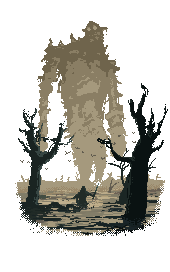 I think a lot about video games. One of my main purposes for this blog is to have a place where I can lay out critiques and thoughts on games. I want to discuss them in a way beyond the like/dislike conversations that you usually get amongst a group of friends (not that I don't love those too). Often this will come out as a short essay. Sometimes it'll be a kind of review (though I don't think I'll be assigning points, stars, or buckets or whatever). I tend to lag behind the big new releases, especially on console, so I won't be your source for breaking news. Mostly I'll be talking about games I've played as opposed to speculation on unreleased ones. I'd love to say that I'm not going to get swept up into the fervor around the latest trailer or Kickstarter for game X, but I'd hate to disappoint everyone. Occasionally I'll get hyped enough about an upcoming game to post about it here. I imagine working in the games industry has influenced my view of games quite a bit. I started in out-sourced QA in 2006, continued on as a QA team lead at EA Montreal, and then started as a Writer/Narrative Designer (depends how fancy I want to sound) at Disney Interactive in 2013. I still feel like I'm just a fan, especially when I'm discussing them as I hope to here, but if I sound like some industry shill at some point, you can blame it on me being on the other side of the fence :) |
Archives
June 2016
Categories |
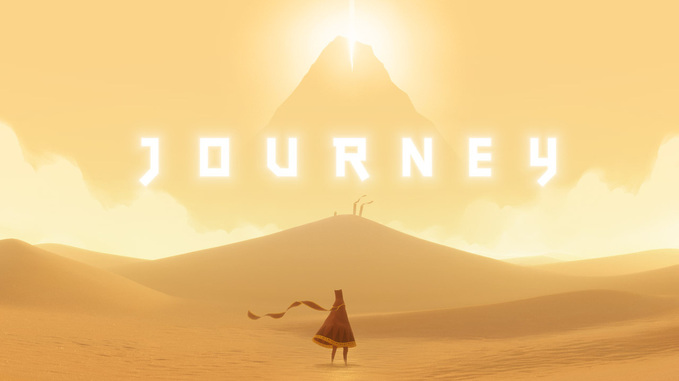

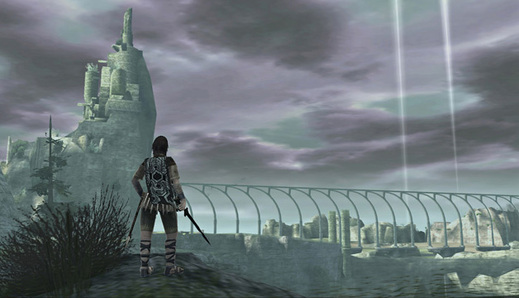
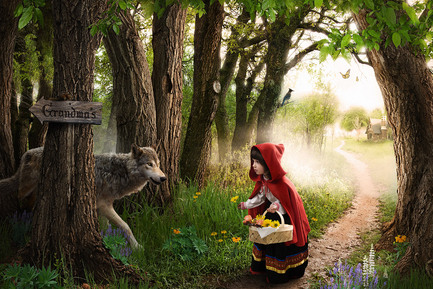
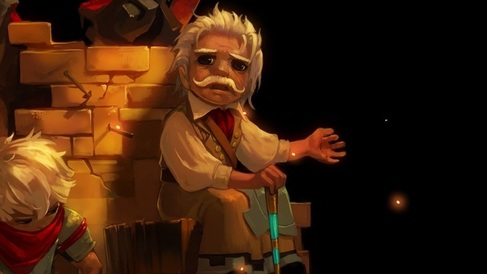
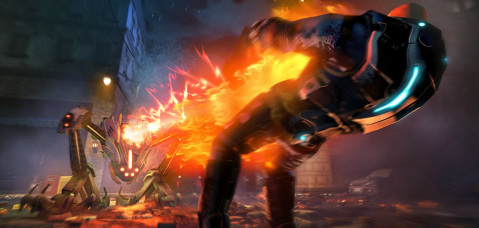
 RSS Feed
RSS Feed